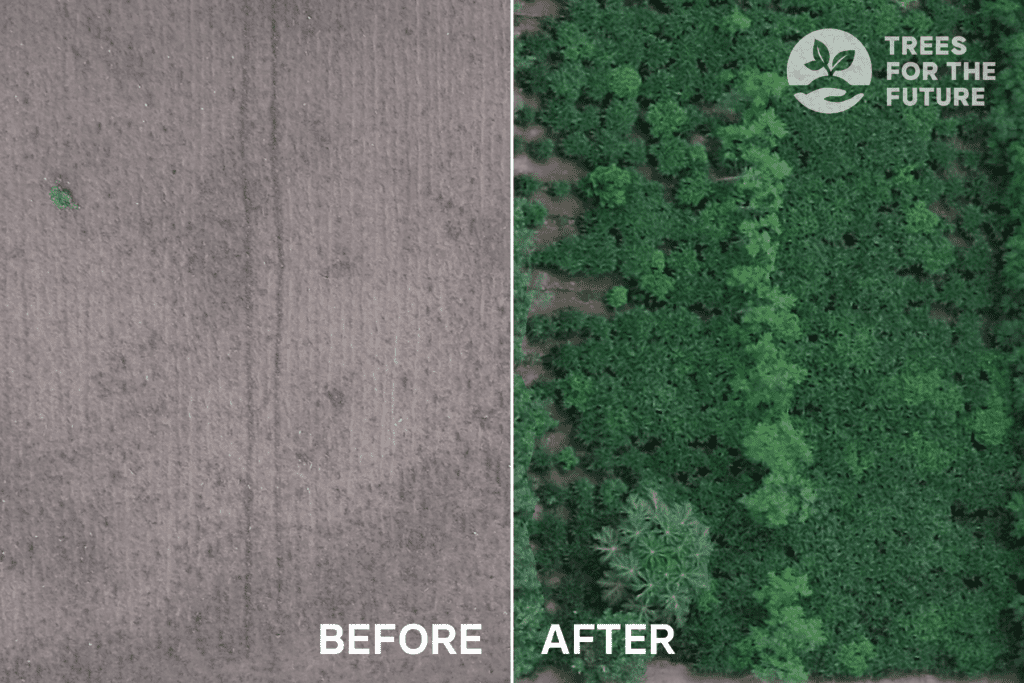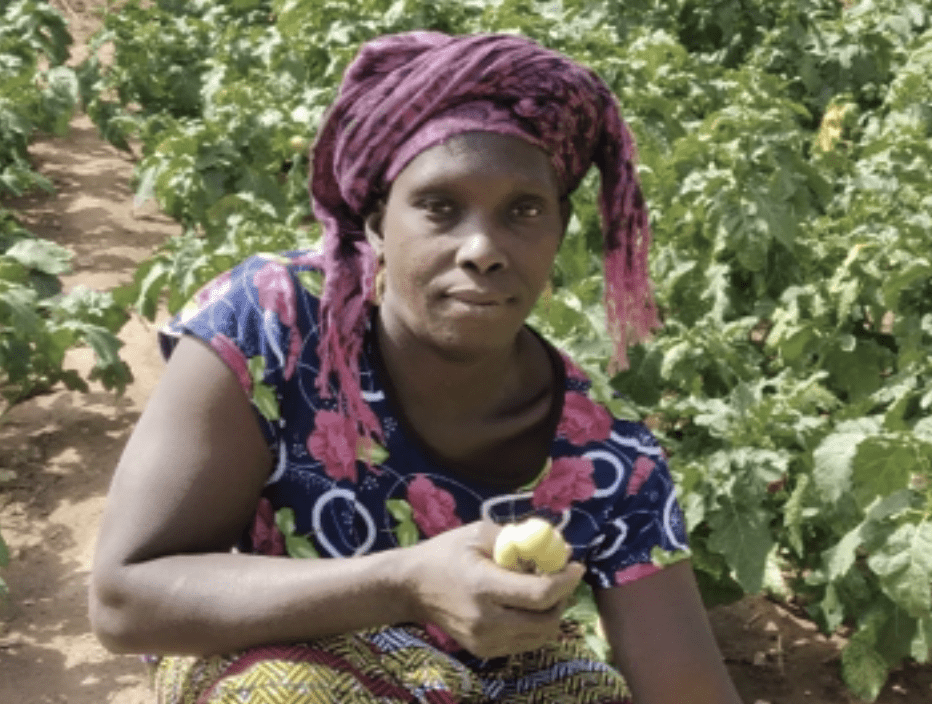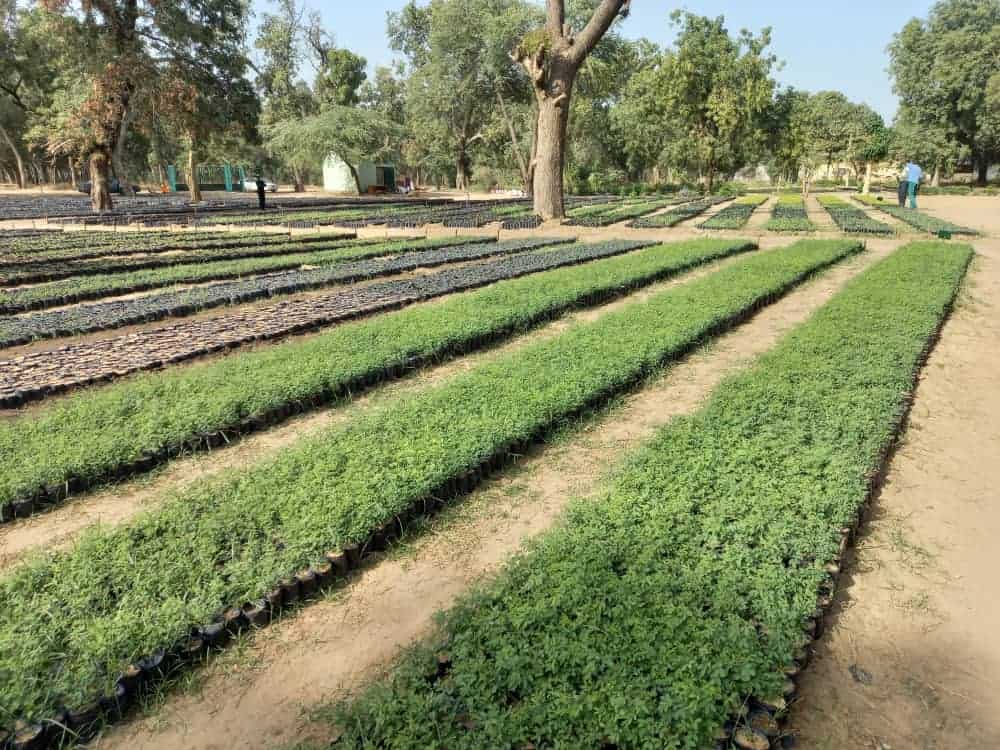Situated on the southern edge of the Sahara Desert, Koulikoro, Mali is on the frontlines of a slow-moving environmental and humanitarian crisis. Extreme temperatures, extended periods of drought, and desertification are making it increasingly more difficult for farmers like Sitan Camara to make a living on their land.
The long-deteriorating conditions of the Sahel region prompted the Great Green Wall movement in the 1970’s. More recently, the African Union has relaunched the initiative to halt the spread of the Sahara Desert through the Sahel region and restore degraded lands for the benefit of people, economies, and the planet. The goal is to restore 100 million hectares of land (from Senegal to Sudan) with trees and plants that also benefit the people living in these impoverished regions.

Agroforestry nonprofit Trees for the Future (TREES) is contributing to the movement by training farmers like Sitan in a sustainable agroforestry approach called Forest Gardening.
“We have received technical training on the production of vegetable crops, compost, and the control of crop pests,” Sitan says of her training. “Especially the seeds and work materials received from [TREES] allowed us to produce better than before.”

Sitan joined TREES’ training program in July of 2021. With guidance from local TREES staff, she and her husband identified a one hectare stretch of their land to establish a Forest Garden. At the time, the parcel of land had 250 trees on it. Today, there are more than 1,100 trees growing in the same space.
“The growing conditions for Malian farmers are exceptionally challenging,” says TREES Mali Country Director, Tahirou Bouare. “But we’ve proven that the Forest Garden Approach is an effective solution. Farmers in Mali are able to restore their land with trees and sustainable techniques, and they can pass that knowledge on to future generations.”

“This project has been a revival in terms of work and economy for us,” Sitan says.
Sitan isn’t alone. TREES currently works in four countries within the Great Green Wall zone: Mali, Chad, Senegal, and Gambia. As of March 2022, the organization has helped farmers in these four countries plant 33.7 million trees – all of which contribute to the overarching goal of the African Union and the Great Green Wall.
By country:
- Senegal: 29.9 million since 2016
- Mali: 1.38 million since 2020
- Gambia: 962,000 since 2021
- Chad: 1.4 million since 2021

TREES’ work in the Great Green Wall zone is made possible in part through a partnership with the Arbor Day Foundation. The Arbor Day Foundation funds projects in Chad, Mali, and Senegal. TREES also works in Kenya, Tanzania, Uganda, Cameroon, and Central African Republic. Learn more about TREES’ work across Africa and donate to reach more farmers like Sitan at trees.org.